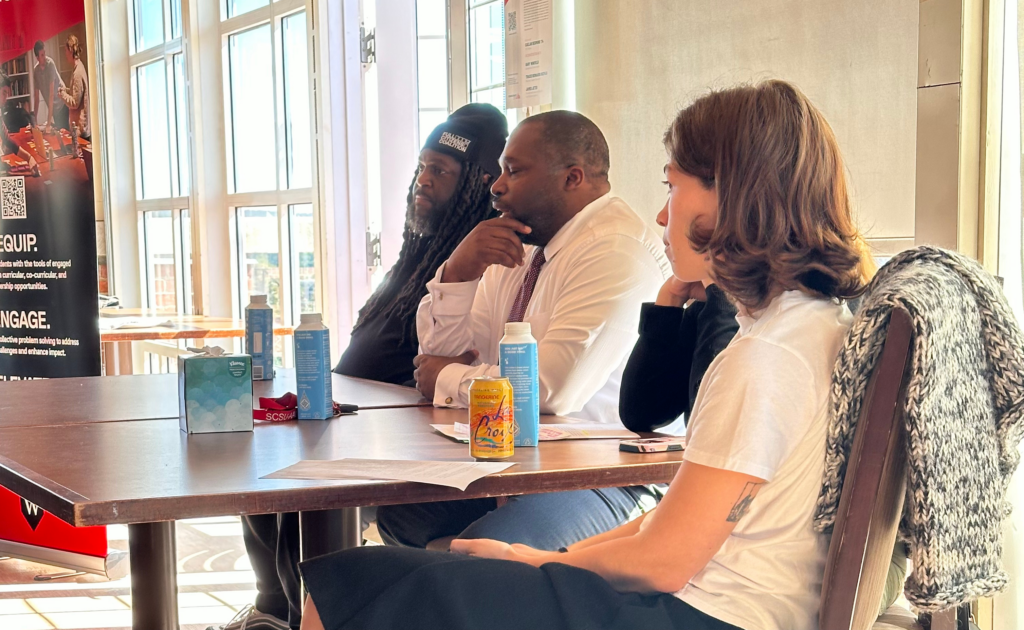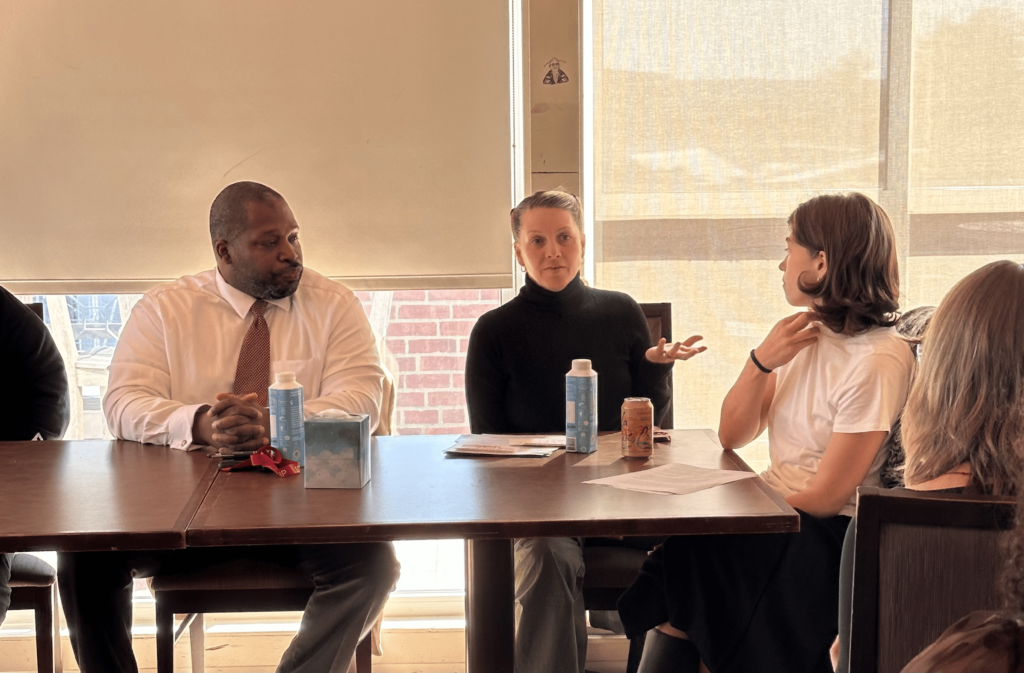As part of Wesleyan’s Democracy 2024 programming, which aims to promote civic participation, especially on the heels of a pivotal election, three leaders working on restoring voting rights for formerly incarcerated individuals convened on October 8th.

Co-sponsored by the Allbritton Center for the Study of Public Life and the Center for Prison Education (CPE), Barriers to the Ballot featured a panel composed of CPE alumna and Organizer James Jeter, Connecticut State Senator Gary Winfield and CPE alumna and advocate Tracie Bernardi Guzman. The conversation, moderated by CPE Fellow Caelan Desmond ’24, focused on the obstacles surrounding ballot access in Connecticut.
Recounting her experience as a case manager at the Waterbury ReEntry Welcome Center, Bernardi Guzman cited the numerous challenges in obtaining valid identification for her clients.
“The majority of people, even after Public Act No. 23-88 was passed…are coming home without identification,” she said.
Although DOC provides people with a face sheet, the document only lasts 30 days. Coupled with DOC’s resistance in helping people obtain their social security and birth certificate, inadequate reentry staffing, use of paper-based payments for state-to-state agency purchases of documents, and the inability to exchange currency in anything other than the U.S. dollar, participating in our democracy becomes increasingly tricky.
Bernardi Guzman also emphasized the broader implications of the inaction surrounding identification, explaining that “you are contributing to the recidivism rate because when people come home and have no identification, they can’t get employed, they can’t housing, … [and] they can’t vote…In order to exist, they need ID.”
Reflecting on election cycles, the fear over crime rates is a common hot-button topic, and candidates seek to avoid appearing “soft on crime.” Research has shown that judges impose more punitive measures in criminal cases during upcoming re-election campaigns.
Combating the stigma against formerly incarcerated people starts with us. Through voting, we can acknowledge that addressing crime through punishment rather than prevention is not working, especially when the U.S. has one of the highest incarceration rates.
 Unless you have magically invented a way to time travel, we cannot undo our worst mistake–we can only move forward. When sending people to prison, we have the choice to either ignore a significant part of our country’s population, pretending it’s not our responsibility, or we can do right by our communities and ensure formerly incarcerated individuals can successfully reintegrate into society, such as through receiving valid identification.
Unless you have magically invented a way to time travel, we cannot undo our worst mistake–we can only move forward. When sending people to prison, we have the choice to either ignore a significant part of our country’s population, pretending it’s not our responsibility, or we can do right by our communities and ensure formerly incarcerated individuals can successfully reintegrate into society, such as through receiving valid identification.
Bernardi Guzman emphasized this point, underscoring that “just because a person made a mistake…we served our time, had time to reflect…,[and] the majority of people when given the…right chances and connections to vocational and educational opportunities… successfully reintegrate.”
At the end of the talk, the panel opened the floor to Q&A.
One audience member, Ava Baeza ’25, who said the panel was her favorite event at Wesleyan, recalled asking the panelists how they persevere in their work.
“A lot of what fuels my passion is through anger and frustration, but it’s not sustainable,” Baeza said. She recounted feeling moved by Jeter’s comment on directing anger towards systems, not people, and Winfield’s advice to find the humanity in everyone.
“They all recognized the work they do will not be accomplished by the time they die…so it’s important to not feel discouraged but rather empowered.”


